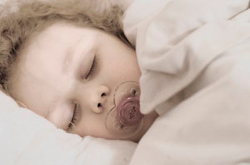오줌싸개

Many parents wish/ children/ were born/ with directions. Raising children/ is a complex job -- many would say/ the most complex/ there is.
Today/ we start/ with a common problem: bed-wetting. The American Academy of Pediatrics says/ about forty percent of preschool-age children/ urinate/ in their sleep.
In most cases, children/ outgrow it. The academy says/ twenty percent of five-year-olds/ and ten percent of six-year-olds/ wet their bed. By the age of twelve, that number/ drops to three percent.
The National Institutes of Health says/ experts/ are not sure/ what causes bed-wetting. The most likely causes, the experts say, include slower physical development/ and overproduction of urine/ at night.
Smaller bladders/ fill more quickly. And some bodies/ take longer/ to develop the warning system/ between the brain/ and the bladder. Some children/ may not receive the message/ to wake up/ when they need to urinate.
Urologic and kidney experts/ at the National Institutes of Health/ also say/ some children/ may not produce enough antidiuretic hormone. The body/ usually produces more of this hormone/ at night/ so less urine/ is produced/ during sleep. The bladders of children/ who produce lesser amounts/ of antidiuretic hormone/ are more likely/ to fill up/ while they sleep.
Experts say/ feeling nervous and worried/ can sometimes lead children/ to wet the bed. Genetics/ may also play a part. Researchers say/ some family genes/ appear to be involved/ in bed-wetting.
Children sometimes think/ they are bad/ because they wet the bed. Parents/ may get angry. Or they may feel guilty, like they have done something/ wrong. Doctors say/ it is important to know/ that how a parent reacts/ could affect a child's self-image.

